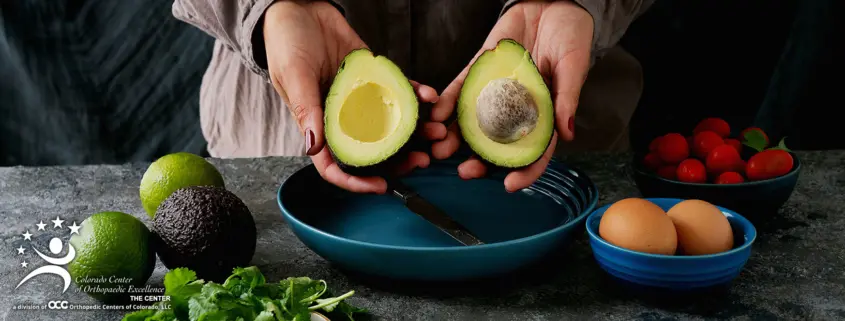Cut your hand? When is your cut serious enough for stitches or hand nerve surgery?
If you’ve cut your hand while slicing or pitting an avocado, you’re not alone! Did you know that avocados are responsible for about 24 hospital visits per day across the country? Technically, it’s not the avocado’s fault, but as the fruit (Yes! It is a fruit!) has risen in popularity, so have knife-related hand injuries. It’s so common that it’s been dubbed “avocado hand” and can be a minor cut or call for major hand nerve surgery if you sever tendons or nerves.
Whether you’ve cut your hand on an avocado or doing something else entirely, it’s important to know when you should get medical care.
You should always get immediate medical attention for a cut if you cannot stop the bleeding, if you’ve lost feeling around the area that is cut, or if the cut is big enough or deep enough that you cannot bring the edges back together when pressing lightly. In these cases, you may need immediate attention to stop blood loss and save nerves and tendons from serious or permanent damage.
If your cut is serious, an emergency room or urgent care team will likely recommend an orthopedic hand specialist to evaluate the damage and determine the best course of treatment. This may include stitches or surgery.
How do I know if I need stitches?
Even with a small or less serious cut, you should be sure to wash the area thoroughly and bandage to minimize the chance of infection, and then you may still need stitches. Whether or not you need stitches depends on the length, depth and nature of the cut. If it’s deep, more than half an inch long, or is wide enough that it doesn’t come together with light pressure, stitches might be needed. It’s best to see a doctor if you’re concerned.
Stitches are also often needed if the edges of the cut are ragged or the wound has any foreign particles in it. Stitches promote better healing, reduce bleeding and the chance of infection and minimize scars. If you do need stitches, your doctor will let you know how long they will be in and if you need to return to their office to have them removed.
Whether you get stitches or not, it’s always a good idea to watch for prolonged swelling, redness or discharge, all of which could be sign of an infection. If you have signs of infection, visit your doctor as they may need to prescribe topical or oral antibiotics.
When hand nerve surgery is needed
When a cut is particularly deep, you are more likely to have damaged the tendons and nerves in your hand and require hand nerve surgery. While some nerve injuries can heal on their own, for the most severe cuts, an orthopedic surgeon who specializes in complex nerve reconstruction can be critical to recovery.
They can repair both the tendons and nerves in the hand. If surgery cannot be completed immediately, they may stitch the wound closed temporarily to minimize additional damage and protect the wound from infection. These types of complex hand nerve surgery is typically done within a week of injury for the best results.
Surgical nerve repair can restore sensation and movement to the hand and fingers and must be done promptly to minimize long-term damage. An orthopedic surgeon will typically try to complete a direct nerve repair if possible. Direct nerve repair reattaches the damaged nerve endings to one another. If that is not possible, a nerve graft replaces the damaged nerve with one from another area in the body.
After surgical repair, your hand will likely be wrapped to protect the wound and it’s natural to experience some swelling for about a week. Icing your hand multiple times for the first several days will reduce swelling and also help to manage pain. Your post-operative care team will provide instructions for icing and to elevate your hand above your heart, which also reduces swelling. They will also provide guidance to care for the wound, including keeping it clean and dry.
You will get specific instructions on when and how to move your hand, depending on the location and the nature of the wound and the best protocol for healing. Physical or occupational therapy is often prescribed and can be vital to long-term recovery.
Do you need an experienced hand doctor? Dr. Gregg Martyak specializes in the treatment of injuries to the hand and upper extremity of both adult and pediatric patients, including hand nerve surgery, microvascular surgery, complex nerve injuries, traumatic reconstruction, arthroscopy and joint replacement.


